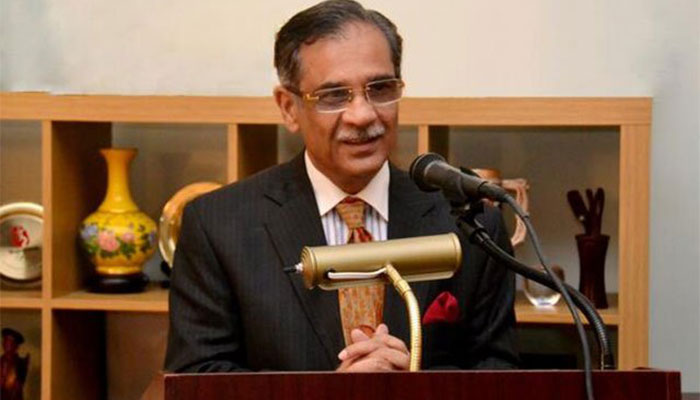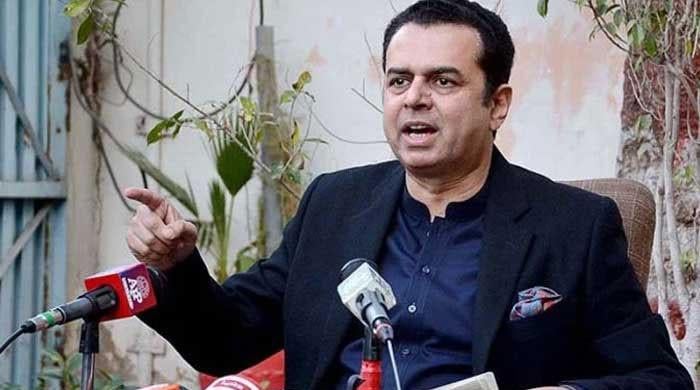SC won't issue any order on Kalabagh Dam affecting any party, says CJP
Justice Nisar's remarks came during hearing of petition requesting a referendum on the construction of Kalabagh Dam
June 09, 2018

KARACHI: Chief Justice of Pakistan (CJP) Justice Mian Saqib Nisar Saturday said the Supreme Court (SC) would not issue any such order on Kalabagh Dam that could affect any party.
“We will play our role in the construction of dams,” the CJP said while heading a larger bench at SC’s Karachi Registry. The bench was hearing a petition filed by Barrister Zafarullah Khan requesting a referendum for the construction of Kalabagh Dam.
“At the moment, we are not arguing over the construction of Kalabagh Dam but are looking at how the issue of water scarcity in the country can be resolved,” Justice Nisar remarked.
Vowing that the apex court will not take a decision which affects any of the petitioners, the chief justice said, “An alternate solution would be sought in case of a disagreement between four brothers.
The CJP’s comment came in response to Advocate Majid Peerzada’s remarks that the issue of Kalabagh Dam was ‘disputed’.
“The people of the four provinces have termed the dam dangerous,” the advocate informed the larger bench.
However, Justice Nisar told Advocate Peerzada, “Do not feel insecure, we desire to do our best to resolve the issue of water scarcity.”
He further said, “Supreme Court is the court of the center and we seek to bring everyone together not create differences.”
“We are adamant that we will resolve the issue of water crisis,” the CJP said, while suggesting that a team be formed comprising experts such as Aitzaz Ahsan to give suggestions on how to tackle the issue.
Justice Nisar asserted, “We will now move forward with the construction of dams and after Eid-ul-Fitr, SC’s Law and Justice Department will hold seminars while experts will give recommendations and SOPs will be prepared.”
The chief justice also asked the petitioner to give recommendations on how dams should be built in the country. “We will forward these recommendations to the Parliament.”
Remarking that laws can be drafted by Law and Justice Department which are then recommended to Parliament, Justice Nisar said, “If the nation gives us authority, we are ready to fulfil our role.”
“The first step towards it will be taken through our seminar which will be held in Karachi and cities across Sindh first.”
People not fully informed regarding construction of Kalabagh Dam: former WAPDA chairman
During the hearing, former chairman of Water and Power Development Authority (WAPDA), Zafar Mahmood, told the court that people were not fully informed about the construction of Kalabagh Dam.
“I resigned from the post of WAPDA chairman following this dispute,” he said.
Informing the court that India has taken over the water tributaries of Ravi and Sutlej and the Indus Waters Treaty also poses a risk, the former WAPDA chairman said, “India will try to stop the flow of water to us.”
To this, the CJP asked Mahmood what role the top court can play.
“There is a need to create awareness on the issue of water scarcity,” Mahmood responded.
Justice Nisar then adjourned the hearing of the case.
The petition on Kalabagh Dam was filed by Barrister Zafarullah Khan in 2013, stating that construction of the dam is important to save the country from plunging into drought.
The petitioner also wrote that construction of the dam will also end electricity crisis in the country and help produce cheap electricity for consumers.









